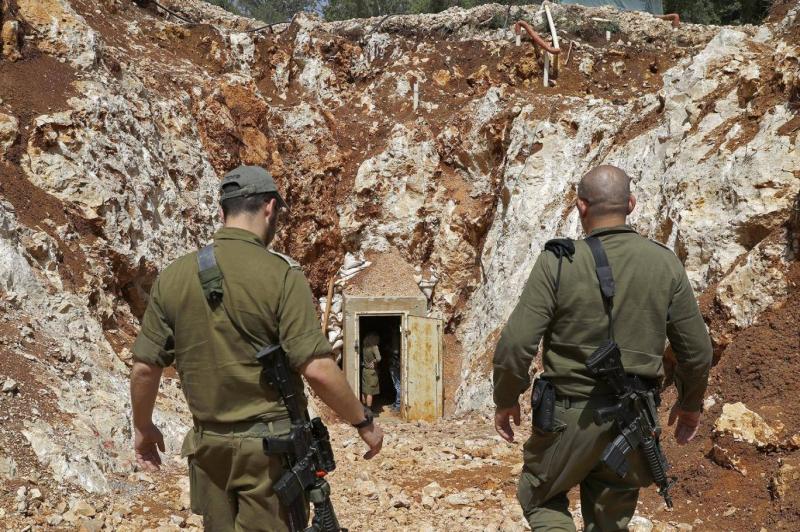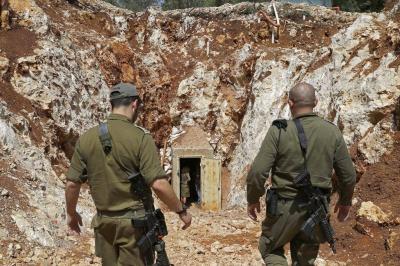Between "Hamas" and "Hezbollah," there are similarities and differences that may help us predict scenarios following Gaza, similar to what we observed after the "July War." Both movements are armed militias that position themselves outside official commitments and are exempt from their consequences: "Hezbollah" by avoiding active participation in the government until the "July War," and "Hamas" by not aligning under the umbrella of the "Palestine Liberation Organization," the internationally recognized legitimate representative at the United Nations. Both groups sought freedom of movement and promoted the idea that this exempts the official side from the repercussions of their actions.
The movements also share a background rooted in a supportive environment, driven not only by political support for the cause but also by social kinship ties in a small community where individuals know each other personally or through family, making political stances based on pride and shame, rather than abstract calculations. Each group has a history burdened by armed conflict with surrounding political factions, and both are linked to Iran. From this similarity begins the narration of differences.
The relation of "Hezbollah" with Iran is organic, characterized by a paternal duty of sponsorship, as Hassan Nasrallah once stated, with weapons and sustenance coming from Iran. In contrast, in the case of "Hamas," it is mostly thought that the relationship is based on political interests, not without its complexities. Additionally, Lebanon, despite its small size, provides southern families a depth they can move into, as well as to Syria, which is not available to the people of Gaza. Lebanon itself is an independent state and a UN member, allowing it to act in that capacity, unlike Gaza.
We have this mixture of similarities and differences to explore potential scenarios post-war. The easiest route is to look at how "Hezbollah" acted after 2006 and select from those actions what "Hamas" is capable of, and what exceeds its capabilities.
Let us start by defining the scope of the conflict. In the case of Lebanon, Israel announced that it was about to undertake a military operation, not a war. Its announced objectives did not include, for example, occupying land, pursuing "Hezbollah" leaders, or liberating its military captives through operations. This allowed "Hezbollah" to declare a "divine victory," despite all that had befallen the country and its forces. It was confident in its ability to compel others to accept that declaration, even if they were not convinced, thereby overcoming any attempts to hold it accountable.
During the conflict, "Hamas" attempted, through its media apparatus, to pave the way for an announcement of a "divine victory." However, the aforementioned differences resulted in an extension of the conflict, an increase in casualties, and "Hamas" finding itself in a worse position. "Hezbollah" emerged from the 2006 conflict retaining a significant portion of its arsenal, and importantly, the supply line from Iran did not cease. This enabled the party to operate post-war in two directions aimed at trading whatever remains of its material and moral strength for increased internal influence. The first direction was to eliminate the opposing political elite, while the second was to paralyze the government with what it called the "guaranteeing third," the number of cabinet ministers able constitutionally to prevent the Lebanese cabinet from passing decisions. This was accompanied by paralyzing the Lebanese Parliament's activities and demonstrating around the government headquarters. The consequence of this can be seen today, as Lebanon's situation has deteriorated to worse than a military defeat.
"Hezbollah" gained another non-visible benefit. Its war against opponents served as a continual reminder to its domestic audience that it was not only fighting Israel but also local rivals, with the goal of maintaining influence. The media does not like to delve into this much, as it is difficult to find in official statements. However, from my position as a ground reporter, this was the pivotal word that kept "Hezbollah’s" position within its community despite the destruction it faced.
Finally, "Hezbollah" found for itself a role that enhanced its importance to Iran and the axis of resistance, which is participation in the Syrian civil war. It also used this to tell the Lebanese that it had warded off the danger from "Daesh."
Which part of this is similar to "Hamas"? The possibility of "Hamas" exiting the conflict while maintaining its strength has ceased, and it is difficult to restore its level of armament prior to October 7 in the foreseeable future. The international acceptance of its existence itself is in doubt, as it has exhibited behavior that puts it in a category unlike that of resistance groups. This is the same reason that will place its financial supporters under increased scrutiny and political stigmatization. This has already begun.
It would not be in "Hamas's" interest to rush into turning the situation into a civil conflict with political rivals as "Hezbollah" did. Considering the social nature of the Palestinian people, I do not think they would accept this from them at the current time. However, I expect that they will invest whatever remains of their power in repositioning themselves within Palestinian society. If not under their current name, they will undergo a "rebranding" and choose a new name. Their main aim in this will be to assert their continued significance to regional sponsors.
It is no secret that there are new peace projects, and reaching a resolution to the Palestinian issue would facilitate progress in those projects. "Hamas" wants to ensure that it has an undeniable voice in these matters. They might sell obstruction to a state that does not want the peace project to be completed. They may also barter their approval for political and economic gains for themselves and their parent group, the "Muslim Brotherhood."
This leads us to another question, with the answer differing depending on who is asked: What condition will "Hamas" be in at the end of the war, in terms of strength and weakness, that would be in the Palestinians' interest? And which condition would be in Israel's interest?




